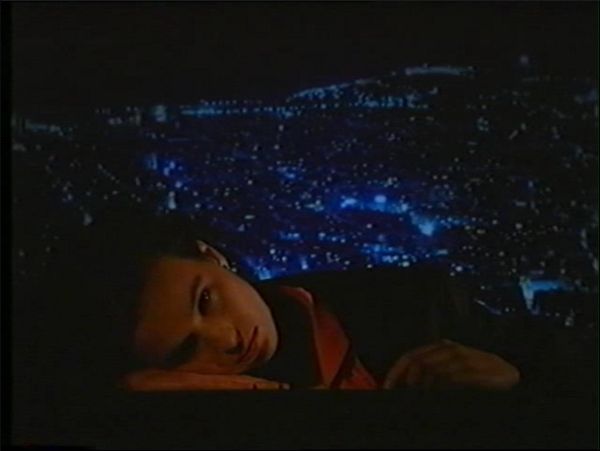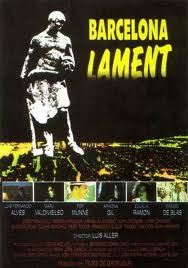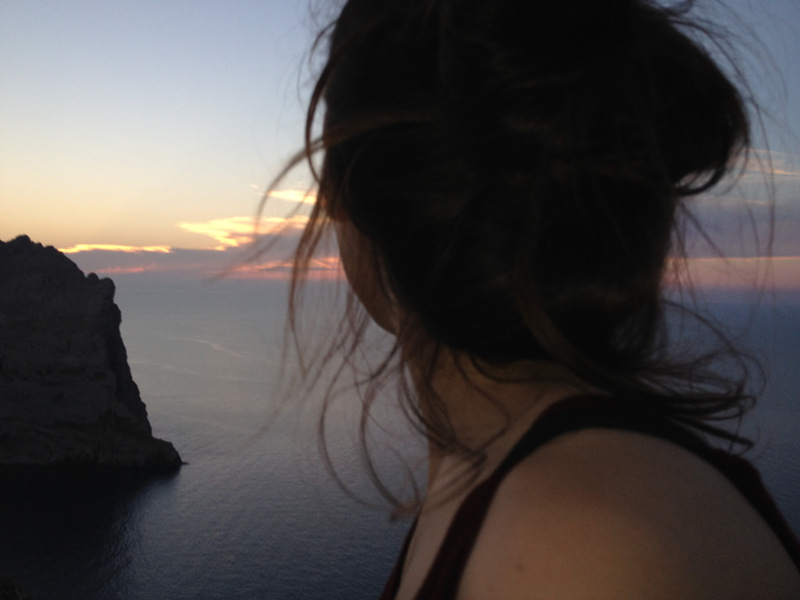Barcelona, lament is the first film of Lluis Aller, who is the head of a film school in Barcelona and who has never directed again. This is a peculiar film about Pau, a guy who feels lost after his relationship with Glòria comes to an end. A series of incidents send his life revolving around murder, prison, the mafia, and, above all, mystery, which is why this film can be categorized as a romantic thriller, although it contains a bit of many different genres.
Just like many directors doing their first movies, Aller chooses an outlaw as his protagonist in this curious story about someone who does not belong anywhere and who does not fit into society. It is not an easy film to watch, though, as it is slow-paced and some parts are not balanced. With a screenplay overloaded with literary and intellectual references, spectators can be repelled instead of sucked in. The film can seem odd and too pretentious at times, and it constantly presents allegories that ask the most essential questions about life and fate, although some kind of black humor can be found as well.
"This film can be categorized as a romantic thriller, although it contains a bit of many different genres."
Unhurried and full of metaphors, there is a lot of dialogue in this film. A narrator reads the most poetic lines, but the characters also use statements that really stick in one’s mind, especially Pau: “Glòria, què ens passa? Estimar no serveix de res” (Glòria, what's going on with us? Love is pointless). Also, “T'estimo, però l'odi creix. Quina veritat més horrible, amor meu. Digues millor 'odi meu'” (I love you, but hate is rising. What a horrible truth, my love. You better say “my hate”). Pau and Glòria share these lines when she becomes pregnant and their relationship is about to expire. Although the language can be very formal and high-brow, all the actors use a standard accent when speaking Catalan. That is partially due to the dubbing, as it seems the movie was shot in both Catalan and Spanish. Other elements that make this film a very good language exercise are the various synonyms and turns of phrase used to reiterate ideas. For instance, like when the narrators says, “espanta, amenaça” (scares, threatens).
In any case, the main language spoken in Barcelona, lament is film language. Aller masters his technique in almost two hours of pure cinema, with references to gifted directors like Frenchmen Alain Resnais and Robert Bresson, and the Danish T. H. Dreyer. Although shot in 1990, it echoes the use of color in the later work of Wong Kar Wai and Almodóvar, and the staging recalls American-born David Lynch. Aller’s use of the camera is active and brave, and he dares to mix many genres, from film noir, to westerns, and even gangster films like The Godfather.
"Clearly, this is not a film for everyone. But, beyond a doubt, it should not remain unwatched."
This melancholy view of life shows a gloomy Barcelona, prior to the 1992 Olympics, which changed the city and gave birth to the so-called “Barcelona brand.” Far from the trendy and slightly hipster city that we find in many of today’s films, Aller’s Barcelona is dark and enigmatic, and its citizens lament and mourn. Among the few actual references to the city, one is especially outstanding: Montjuïc Mountain, the perfect place from which to stare at the whole of Barcelona, and its Magic Fountain, where in the nineties there was already a popular water show, albeit without the lavish music that accompanies it now. Some streets are also mentioned in the movie, maybe chosen as symbols: Pau recounts how he drives through the “Carrer del Perill” (Danger Street), “Carrer de la Fortuna” (Luck Street) and “Avinguda del Renaixement” (Renaissance Avenue, although the same word can mean “rebirth”).
Clearly, this is not a film for everyone. But, beyond a doubt, it should not remain unwatched. It is one of a kind, and should be enjoyed for maximum quality on a cinema screen. It is a very personal view on many fundamental ideas, in which impossible or fatal love is the only way.




